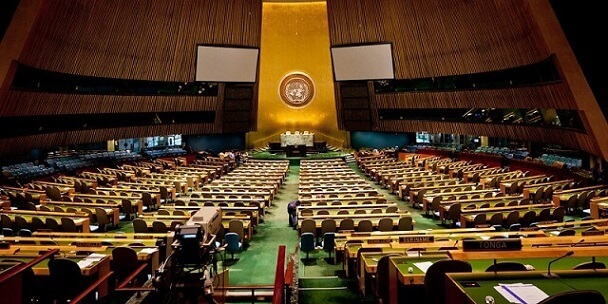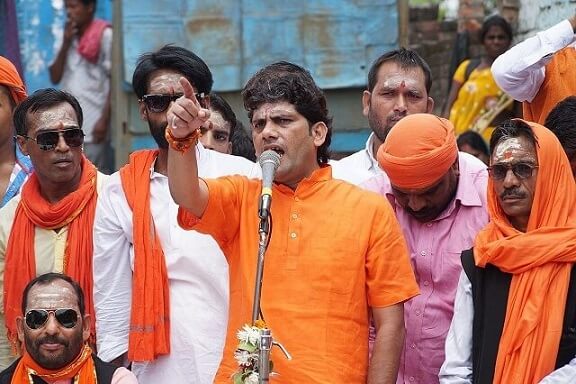It is easy to evaluate the legacy of those public figures who did much good for society and some bad; or those who are remembered in the history of the world because of the havoc they wrought. But, how to evaluate those who invoke extreme emotions on both sides? Two such examples are Winston Churchill and Henry Kissinger. Some classify them as great patriots, ardent nationalists, and grand strategists while many others view them as war criminals. Both were remarkable historians (using the past tense here only to represent Kissinger’s active years in public life since he is still amongst us), original thinkers, and had a grand strategic vision for their own nation. Both are despised outside their nations, particularly in Asia, while mostly being admired in their own.
Winston Churchill was the very definition of Imperialism. Even after spending quite some time in India (mostly in Bangalore but also some trips to Meerut for participating in Polo tournaments) during his youth when he served in the army, he could not appreciate the beauty of India’s culture. India remained to him “a beastly people with a beastly religion.” He would have surely been delighted when in 1911 the British decided to move the Raj’s capital from Kolkata to Delhi with the vision of ruling India for a thousand years. Twenty years thence, Gandhi was climbing the steps of the Viceroy’s House after having shaken the foundations of the Raj by the Salt Satyagraha. Churchill described this event vividly as “alarming and also nauseating to see Mr. Gandhi, a seditious Middle [Inner] Temple lawyer, now posing as a fakir of a type well known in the East, striding half-naked up the steps of the Viceregal palace, while he is still organizing and conducting a defiant campaign of civil disobedience, to parley on equal terms with the representative of the King-Emperor.” In twenty more years, India was independent and Churchill was the prime minister of the United Kingdom for a second time. By now, things had changed so much that instead of harking back to the vision of ruling India for a thousand years, Churchill was addressing the Indian prime minister with these words: “I told him [Nehru] he should be the light of Asia,” and “Here is a man who has conquered both hate and fear.”
It is true that Churchill had been a source of great inspiration for his countrymen during the Second World War. He had infused stupendous fortitude amongst his countrymen and acted as the adamantine bulwark against Germany until America entered the War. With thunderous speeches like “We shall never surrender” and emotionally evocative writings, he provided moral courage to his nation at a time when London was being bombed and forces on the European mainland were retreating. As Edward Murrow has written, “he mobilised the English language and sent it into battle.” There is a reason why the Soviets called him the “British Bulldog.” It is equally true that he was very much responsible for the Bengal Famine of 1943 which was a great man-made disaster. Churchill refused to send sufficient food supplies to the dying and emaciated Indians even when President Roosevelt tried to intervene. Churchill’s response to the crisis was: “Why hasn’t Gandhi died yet?” and that the famine was Indians’ own fault because of “breeding like rabbits.” One hopes that these remarks were one of those examples of the British sense of humor which Indians cannot interpret. Since India has become democratic, with the introduction of effective food redistribution policies, it has not seen a single big famine. Not just towards Indians, Churchill expressed similar racist remarks for other peoples too and remained an unapologetic Imperialist.
Around the time Churchill was assuming the office of the prime minister during the War, a young Jewish boy was fleeing Germany to take asylum in America. This boy, Henry Kissinger, served in the American military, obtained a Ph.D., and then became a faculty at Harvard. He was handpicked by President Richard Nixon to serve first as the National Security Advisor (NSA) and then as the Secretary of State. He was instrumental in the “opening to China” which started the path to stabilize the relations between the two big powers. He or rather the decisions he took were directly responsible for many war crimes especially in Bangladesh (then West Pakistan) and Vietnam. Ignoring the horrendous genocide that was being committed by Pakistan’s Army, Kissinger kept supporting it in a losing war. At the time, Nixon had infamously opined the Indian Prime Minister as “a bitch” to which Kissinger’s reply was “Well, the Indians are bastards anyway.” The great crime that Indians had committed in their view was that of neutrality during the Cold War.
In less than half a century of affirming Indira Gandhi as “a bitch,” Kissinger was using “the formidable” ahead of her name. He was singing peans of the Indian policy of neutrality by equating it with America’s foreign policy for more than a century from the time of its inception. He was all praise for Kautilya and his Arthashastra. Such is the slavery of time. Even today at the age of 96, Kissinger continues to be a remarkable writer and a formidable foreign policy strategist. He is widely admired in the U.S. and is often acknowledged as one of the best NSA that America ever had, and someone who had single-handedly transformed the American foreign policy towards Asia.
Curiously, it is interesting to note a few similarities between these two figures—Churchill and Kissinger. First, both spent most of their lives outside the realm of power but never became irrelevant. Through their writings and speeches, they influenced the government of the day from outside as well. Second, both were awarded the Nobel Prize in dubious circumstances. Churchill was awarded the prize for his contributions to Literature (which are debatable despite the fact that he wrote a large number of books). It is speculated that the Nobel Committee found it unjustifiable to award him the Nobel Peace Prize but wanted to acknowledge him anyway because of the stature he had gained after the War. Two decades after Churchill won the prize, on the other side of the Atlantic, Kissinger won the same which led to a satirist commenting that “Political satire became obsolete when Henry Kissinger was awarded the Nobel Peace Prize.” It remains one of the biggest controversies around the prize. Third, sadly, Bengalis had to bear a large brunt of the policies crafted by both these figures. The cold realpolitik calculations that these leaders arrived at and followed ruthlessly has meant that they shall never be able to remove the stains of blood from their legacy—at least in South Asia.
Perhaps it is fair then that a Bengali should have the deciding word here. Hence, let me quote Amartya Sen (another Nobel Laureate) to write that any evaluative judgment must be comparative. Thus, to evaluate public figures like Churchill and Kissinger, one must put them alongside their contemporary figures and times and let the all-powerful processes of History take their course. After all, like that other great German who invokes extreme emotions from every single conceivable political and ideological side wrote:
People make their own history but not in circumstances of their own choosing, rather in circumstances that are given and transmitted from the past. —Karl Marx

 Is the World Order Fundamentally Changing?
Is the World Order Fundamentally Changing?